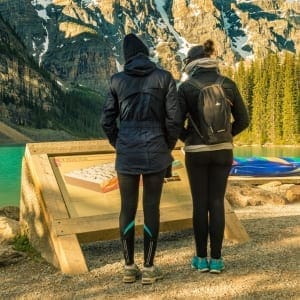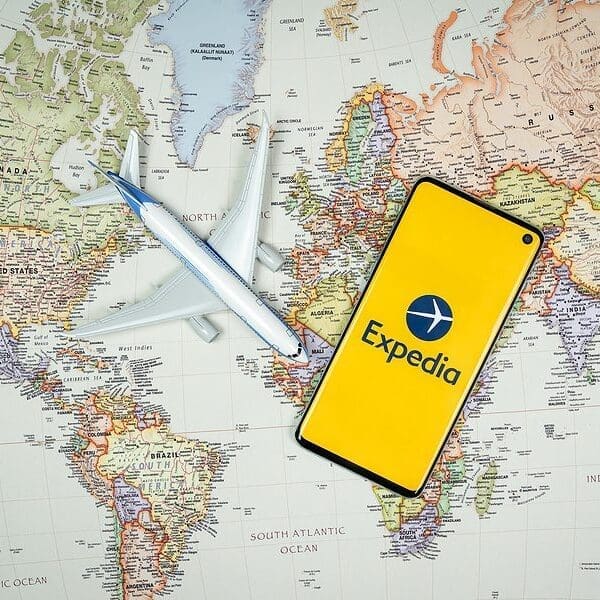 Following a year where for many, every aspect of life – from work, school, daycare, and even vacation – was spent under one roof, in 2021 people worldwide are more determined than ever to use up all the vacation days they’ve earned.
Following a year where for many, every aspect of life – from work, school, daycare, and even vacation – was spent under one roof, in 2021 people worldwide are more determined than ever to use up all the vacation days they’ve earned.
According to the annual Vacation Deprivation study from Expedia®, in 2021 Americans plan to take an extra week (five days) of vacation. With this new “no days left behind” mindset, Vacation Deprivation is well on its way to becoming a thing of the past.
Expedia first launched the annual study more than two decades ago to illustrate the benefits of vacation and encourage working adults to regularly unplug. In recent years, the benefits of vacation are well-known and undisputed, yet Vacation Deprivation is on the rise in most nations. This year’s findings point to yet another shift, one in which workers agree they will never take their vacation days for granted again. In fact, many Americans are optimistic about travel in 2021, with 36 percent planning to resume taking regular vacations this year, and another third (32%) vowing to take more vacations than usual to make up for lost time in 2020.
U.S. Vacation Deprivation at-a-glance
The study found that the U.S. reported the fewest number of vacation days taken in 2020 out of the 16 countries surveyed. Considering the impact of the pandemic on travel, feelings of vacation deprivation were unsurprisingly higher than in years’ past, with 64 percent of U.S. respondents reporting they felt vacation deprived, a three percent increase from 2020 and 11 percent increase compared to five years ago. The study also found:
- Fewest Days Received, Most Days Left on the Table:
Not only did U.S. employees take the fewest vacation days (8) in 2020, along with Thailand the U.S. also received the fewest vacation days (13) when compared to other countries surveyed. - Time Between Vacations Has Grown: One in four (26%) U.S. respondents noted they haven’t taken a vacation in over a year, compared to 16 percent in 2019.
- Using Vacation Time, but Not for Vacation: 47 percent used at least one vacation day in 2020 to care for a sick family member or in lieu of childcare.
- More Cancelled Trips: 42 percent cancelled one or more trips last year due to COVID-19.
It’s not all bad news, however. With Americans planning to take 13 vacation days this year, up from just 8 days taken in 2020, work-life balance is bound to improve.
Queue the bucket lists
Though the pandemic put a damper on vacation plans, the study results show that the desire for travel has not diminished. In fact, 66 percent of people globally were inspired to create a travel bucket list, and the longer the pandemic has waged on, the longer bucket lists have become – 60 percent of respondents said they continue to add to their lists.
Expedia’s study also found that people are willing to put more budget into their bucket list vacations in 2021 than originally planned (61%). Whether it’s trying a new activity, seeking out a place untraveled, reuniting with loved ones separated by distance (64 percent find vacation time more valuable when spending quality time with family), or simply having time to recharge (54 percent think having the time to relax and do nothing is what makes them happiest on vacation), travelers want to make the most of their time.
2021 is on track to be the year people take back their days
As the hope for future travel in 2021 grows, Expedia is already seeing an uptick in people searching for their next bucket list location. For spring getaways, Expedia.com data shows that Americans are searching for warm weather and beaches. These are the destinations garnering the most interest for March and April escapes:
- Top-searched*: Riviera Maya/Playa del Carmen/Tulum; Cancun; Isla Mujeres; Las Vegas, NV; Orlando, FL; Puerto Vallarta/Riviera Nayarit, Los Cabos, Miami, FL; Oahu, HI; Maui, HI
Meanwhile, the trending destinations for spring show similar themes to destinations highlighted in the 2021 Trends Report, primarily outdoorsy, small towns or off the beaten path:
- Trending**: North Georgia Mountains, GA; The Hamptons, NY; Front Royal, VA; Southwest Colorado, CO; Hagerstown, MD; Upper Peninsula, MI; South Shore, MA; Boone, NC; Lake Placid, NY; Dahlonega, GA
“The longer the pandemic, the larger the vacation bucket list and the greater the yearning to travel,” said Shiv Singh, Senior Vice President and General Manager of Brand Expedia. “Globally, 81% of working adults are placing more value on vacation and 66% of them have been inspired to create a bucket list. Whether it’s inspiring memorable experiences to add to the bucket list, sharing helpful travel tips or spotlighting flexible deals, Expedia will be here to help travelers discover new destinations – smartly and confidently.”
About the Vacation Deprivation Study
Expedia first commissioned Vacation Deprivation in 2000 to examine the work-life balance of Americans. The annual study is currently in its 21st year and was conducted online among 9,200 respondents across North and South America, Europe and Asia-Pacific. Commissioned from November 18-December 9, 2020 on behalf of Expedia by Northstar Research Partners, a global strategic research firm, responses were gathered using an amalgamated group of best-in-class panels. Looking at the margin of error for the global average, a 1% difference is statistically significant at 90% confidence.
Notes to Editor Traveler wellbeing is our priority. Expedia understands how the global impact of the coronavirus pandemic continues to affect travelers everywhere, as well as the importance of abiding by government restrictions and practicing social distancing. Travelers can visit the Expedia COVID-19 travel resource page for information to make informed travel decisions.
*Top destinations based on Expedia.com lodging searches as of January 8, 2021 for stays taking place in March and April 2021. **Trending destinations are those showing the biggest lift in lodging searches for March and April stays on Expedia.com compared to the same travel window in 2020.


















